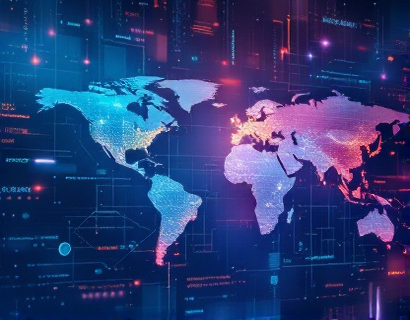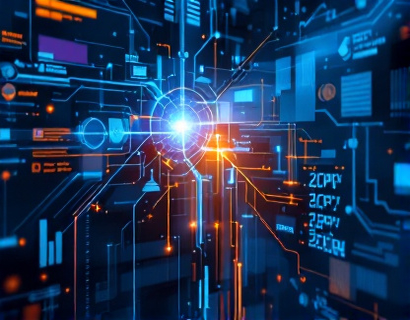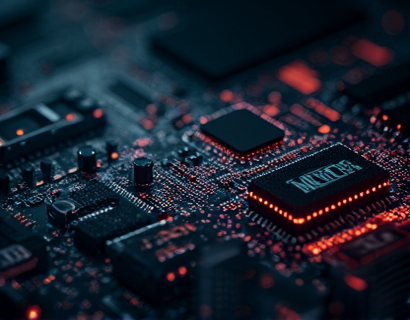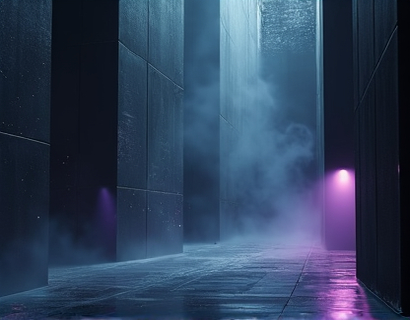Revolutionizing Online Memorial Creation: The Synergy of AI and Blockchain
The intersection of artificial intelligence (AI) and blockchain technology is giving rise to innovative solutions in various sectors, including the creation of online memorials. This emerging field combines the emotional depth required in memorializing loved ones with the technical prowess of modern technology to offer secure, personalized, and lasting tributes. The result is a transformative platform that redefines how we remember and honor the deceased, providing bereaved families and individuals with tools to create meaningful legacies.
Understanding the Need for Advanced Memorial Solutions
The process of creating an online memorial is often fraught with emotional challenges and logistical complexities. Traditional methods of memorial creation can be time-consuming, insecure, and lack personalization. Bereaved families seek solutions that not only preserve memories but also ensure the privacy and integrity of these digital tributes. The integration of AI and blockchain addresses these needs by offering a robust, user-friendly, and secure platform for memorial creation and management.
AI in Memorial Creation: Personalization at Its Best
Artificial intelligence plays a pivotal role in crafting personalized memorials. AI algorithms analyze user inputs, preferences, and the life story of the deceased to generate a tailored tribute. This includes curating photos, compiling life events, and even drafting personalized messages that reflect the unique personality and journey of the individual being remembered. The AI's ability to learn and adapt ensures that each memorial is distinct and deeply personal, providing comfort and solace to those left behind.
Content Generation and Curation
AI-driven content generation is a cornerstone of this technology. It can create biographies, highlight significant life events, and even compose poetry or letters that capture the essence of the deceased. This content is not only personalized but also dynamically updated based on user interactions and new information provided by family members. The AI ensures that the memorial remains a living tribute, evolving over time to reflect the ongoing memories and stories shared by those who visit.
Emotional Intelligence and Empathy
Beyond content creation, AI can simulate emotional intelligence to offer a more empathetic experience. By understanding the emotional context of the memorial creation process, AI can provide supportive prompts, suggestions, and even mental health resources for those in grief. This empathetic approach helps users navigate their emotions while creating a tribute, making the process less daunting and more healing.
Blockchain: Ensuring Security and Ownership
Blockchain technology provides the backbone for secure and tamper-proof memorial management. Each memorial is stored on a decentralized ledger, ensuring that it is protected from unauthorized access and alterations. This immutable record not only safeguards the digital legacy but also gives the family complete control over who can access and contribute to the memorial. The transparency and security of blockchain foster trust, allowing users to focus on honoring their loved ones without concerns about data integrity.
Decentralized Identity and Access Control
Blockchain enables decentralized identity management, allowing families to create secure identities for their loved ones' memorials. This means that only authorized individuals can view or add content to the memorial, ensuring privacy and respect for the deceased. Smart contracts can be used to define access rules and permissions, providing a flexible yet secure framework for managing who can interact with the memorial.
Tokenization and Incentives
Blockchain also introduces the concept of tokenization, where digital tokens can be used to incentivize contributions to the memorial. Family members and friends can send tokens as a way to express condolences or contribute to the maintenance of the memorial. These tokens can be stored, traded, or used to unlock premium features, creating a community-driven approach to memorial care.
Combining AI and Blockchain for Enhanced Memorial Experiences
The true power of this technology lies in the synergy between AI and blockchain. AI enhances the personalization and emotional depth of the memorial, while blockchain ensures the security, privacy, and ownership of the digital legacy. Together, they create a comprehensive solution that addresses the multifaceted needs of bereaved families.
User Interface and Experience
The platform is designed with a user-friendly interface that simplifies the memorial creation process. Users can easily upload photos, write messages, and manage access settings through an intuitive dashboard. AI-powered suggestions and guided steps make it accessible for everyone, regardless of technical expertise. The combination of a seamless UI and intelligent assistance ensures that users can focus on creating a meaningful tribute without getting bogged down by complexities.
Community and Support
Beyond the technical features, the platform fosters a community of support. Users can connect with others who have created memorials, share experiences, and find comfort in collective remembrance. AI-driven matchmaking can connect users with similar backgrounds or experiences, creating a network of support and understanding. This community aspect is crucial in helping individuals navigate their grief and find solace in shared memories.
Privacy and Ethical Considerations
The integration of AI and blockchain raises important privacy and ethical questions. Ensuring that user data is handled with the utmost care is paramount. The platform employs robust encryption, anonymization techniques, and strict data governance policies to protect user information. Transparency in data usage and clear consent mechanisms empower users to make informed decisions about their digital legacy.
Ethical AI Usage
AI is used ethically to enhance the memorial experience without compromising the dignity of the deceased or the emotional well-being of the users. The AI's role is to assist and support, not to replace human emotions or decisions. Ethical guidelines are established to ensure that AI-generated content respects cultural sensitivities, personal preferences, and the overall intent of the memorial.
Future Prospects and Innovations
The potential for AI and blockchain in memorial creation is vast, with ongoing research and development promising even more advanced features. Future innovations could include augmented reality (AR) experiences that allow users to virtually visit and interact with the memorial in immersive ways. AI could also integrate with wearable devices to trigger personalized memories or messages at significant dates or locations.
Interoperability and Ecosystem Expansion
As the technology matures, interoperability with other digital services and platforms will become increasingly important. The memorial ecosystem could expand to include integration with social media, genealogy databases, and other relevant services, providing a comprehensive and connected approach to remembrance. This interconnectedness can help preserve a more holistic view of the deceased's life and legacy.
Conclusion
The convergence of AI and blockchain in online memorial creation represents a significant leap forward in how we honor and remember our loved ones. By offering secure, personalized, and meaningful tributes, this technology addresses the deep emotional needs of bereaved families while ensuring the longevity and integrity of digital legacies. As this field continues to evolve, it holds the promise of transforming the way we cope with loss and celebrate life.










































